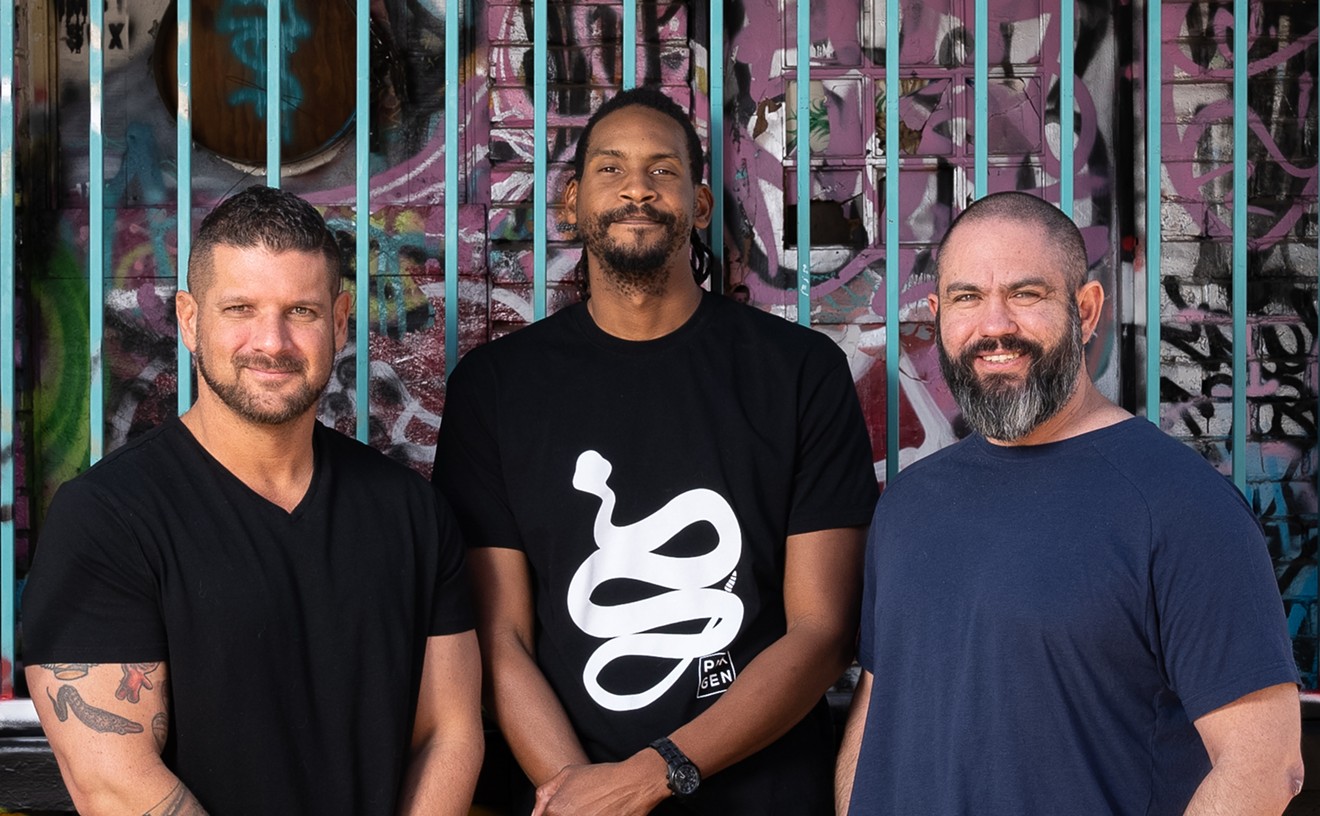First of all, children will love Harry Potter. While this is as much a media mandate as a seat-filling shoo-in, the movie's target audience is very well served here, with blithe whimsy to spare, balanced by some sinister elements lurking beneath the trapdoor of nightmare. For every talking hat or zooming broomstick, there's a gruesome specter or vicious beastie, and it's all good. Since many parents these days seem hell-bent on bowdlerizing their kids' cultural experience -- inadvertently depriving them of the emotional fortification of intelligent storytelling -- it's refreshing to take in an old-fashioned yarn that's wise enough to match its estimable light with edifying shadow.
Meanwhile, most adult viewers may not help but apprehend Harry Potter as a gentle juggernaut, a formidable worldwide literary movement, a massive phenomenon the full impact of which remains to be seen. (Sorry, John, but this may be bigger than the Beatles.) Children are celebrating these books all over the place, but young Mr. Potter is also making the rounds of libraries, universities, car stereos on long rides. Mothers are reading Harry to their kids, but also sharing the books with their mothers. For legions of fans, this cinematic adaptation represents the culmination of countless shared dreams.
Happily, then, the first movie of the Harry Potter series casts a splendid spell, as screenwriter Steve Kloves has transcribed J.K. Rowling's novel nearly to a T, with precious little tweaked or trimmed. Even better, director Chris Columbus (Home Alone, Mrs. Doubtfire) strides beyond his established predilection for syrup and pratfalls, finally challenging himself in the field of awe and beauty. Surely, purist detractors will lodge myriad complaints, but at about two and a half hours, Columbus and editor Richard Francis-Bruce have struck an ideal compromise between practical duration and supernatural atmosphere.
Now, for the remaining three or four residents of Earth who don't yet know the story, the titular Harry (Daniel Radcliffe) is a bespectacled English boy enduring his painfully prissy foster family, the Dursleys (Fiona Shaw, Harry Melling and the lovably horrid Richard Griffiths, of Withnail and I). On Harry's 11th birthday -- much to the family's ire -- he is invited to enroll at the prestigious Hogwarts School of Witchcraft and Wizardry, there shepherded by a friendly giant named Hagrid (Robbie Coltrane, of Nuns on the Run), who reveals Harry's true identity as a wizard.
During a shopping spree for supernatural school supplies (where he meets John Hurt in a poufy wig, and Warwick Davis and Verne Troyer as goblin bankers), Harry learns about the lightning-shaped scar on his forehead. Hagrid reveals that an evil wizard named Voldemort killed Harry's true parents (whom the Dursleys told him perished in a car crash), and, as a baby, Harry narrowly escaped. Soon thereafter, on a northbound steamer called the Hogwarts Express, Harry learns from two new friends, humble Ron (Rupert Grint) and not-so-humble Hermione (Emma Watson), that his wizardly fame precedes him.
What follows is a wonderful, yearlong adventure at Hogwarts, wherein Harry's destiny is gradually revealed via various professors and classmates. The ever-transforming Warwick Davis (Willow) shows up again as Charms Professor Flitwick, and Zoë Wanamaker is the cat-eyed Madame Hooch, who teaches the children to fly on their brooms. There's also quirky Professor Quirrell (Ian Hart), who teaches Defense Against the Dark Arts, and the feline Professor McGonagall (a sublime Maggie Smith), who specializes in Transfiguration. At the helm is the venerable Professor Albus Dumbledore (a stately Richard Harris), the most powerful and enlightened wizard.
Rather than turning the palatial Hogwarts into a ghastly new-age colony, Rowling and Columbus have impregnated it with malevolence, with corridors leading to certain death and a forbidden forest filled with sinister creatures. There are also agents of darkness about the grounds, particularly Professor Snape (Alan Rickman). Although supposedly specializing in Potions, the rather dubious Snape is obviously spearheading some clandestine mission, as Harry, Ron and Hermione learn from inopportune sightings and clumsy Hagrid's loose lips. Fun may be had, but danger is afoot.
Among the few complaints is that the story moves too hastily from one glorious set piece to the next, with intimacy amongst the characters sometimes playing second fiddle to spectacle. Fortunately, this quirk is minor, and the visuals are indeed stunning. Hogwarts itself is a Gothic marvel, its foreboding exterior housing a miraculous great hall, ever-shifting staircases, and the greatest dorm rooms ever designed. The famed Quidditch match (aerial broomstick rugby, sort of) summons memories of Speederbikes and Pod races, and this may be because of Lucasfilm's Industrial Light & Magic being one of eight effects companies contributing to this miraculous endeavor. It bears noting that Harry Potter is about the value of filmmaking family, in addition to the normal kind.
To his credit, Columbus remains faithful to Rowling's worldview and game plan, rather than attempting -- as many directors would -- to bend them to his own purposes. To some extent, Harry Potter is streamlined for widest appeal -- note the presence of TBEs (Token Black Extras) -- but the director manages to keep his show from becoming just another sterile amusement park attraction or clamorous Hook. Columbus seems to be drawing upon the adventure of The Goonies (which he penned), while adding to the legacy of vital fantasies such as Willy Wonka and the Chocolate Factory, Time Bandits and even The Little Vampire, all of which wisely stirred some malice into their magic.
As but one example of Harry Potter's narrative functionalism, Harry stands transfixed before a bewitched mirror, and Dumbledore appears, eager to explain its power. "It shows us nothing more than the deepest and most desperate desires of our hearts," explains the old wizard, who could be talking about any and all media. "This mirror gives us neither knowledge nor truth. Men have wasted away in front of it." The beauty of this project, ultimately, is that it reminds us how crucial it is, in all aspects of life, to get up and wonder.










